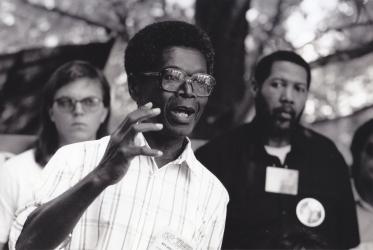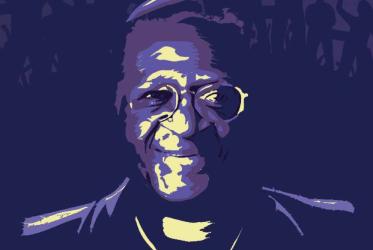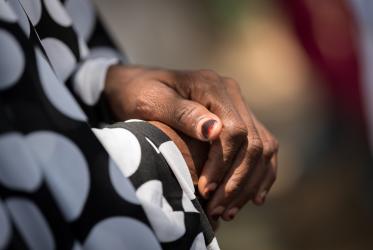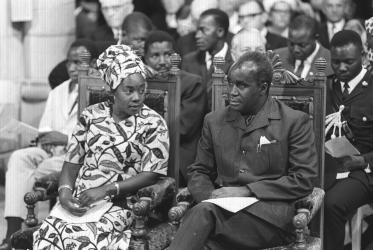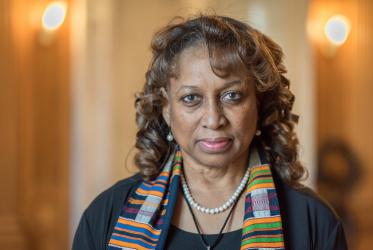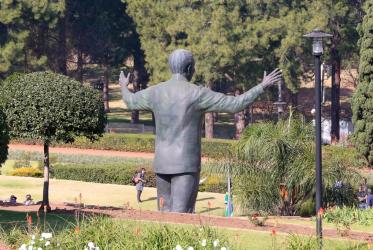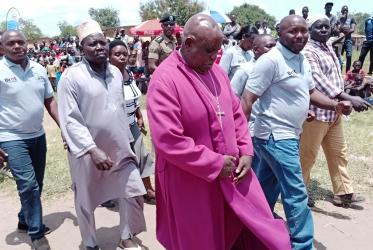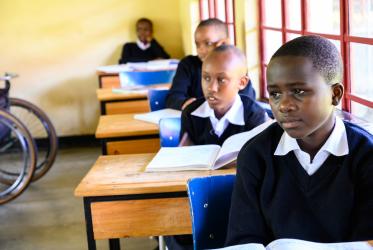Displaying 1 - 20 of 93
Theological education in Africa promotes social transformation
03 November 2022
WCC leaders recall life-changing experiences from early days
10 February 2022
Tutu’s legacy: A Zoom panel celebrating “the Arch”
03 February 2022
In a COVID-stricken world, “everyone is important”
23 October 2020
South Sudan Church leaders welcome new cabinet
15 March 2020
South Sudan Council of Churches: peace “is a question of the heart”
11 November 2019
Churches in southern Africa stand against violence, xenophobia
10 October 2019
Religious leaders from South Sudan cherish those who host refugees
23 September 2019
African religious leaders express new concerns over South Sudan peace
19 September 2019
Mission and people with disabilities
26 June 2019
